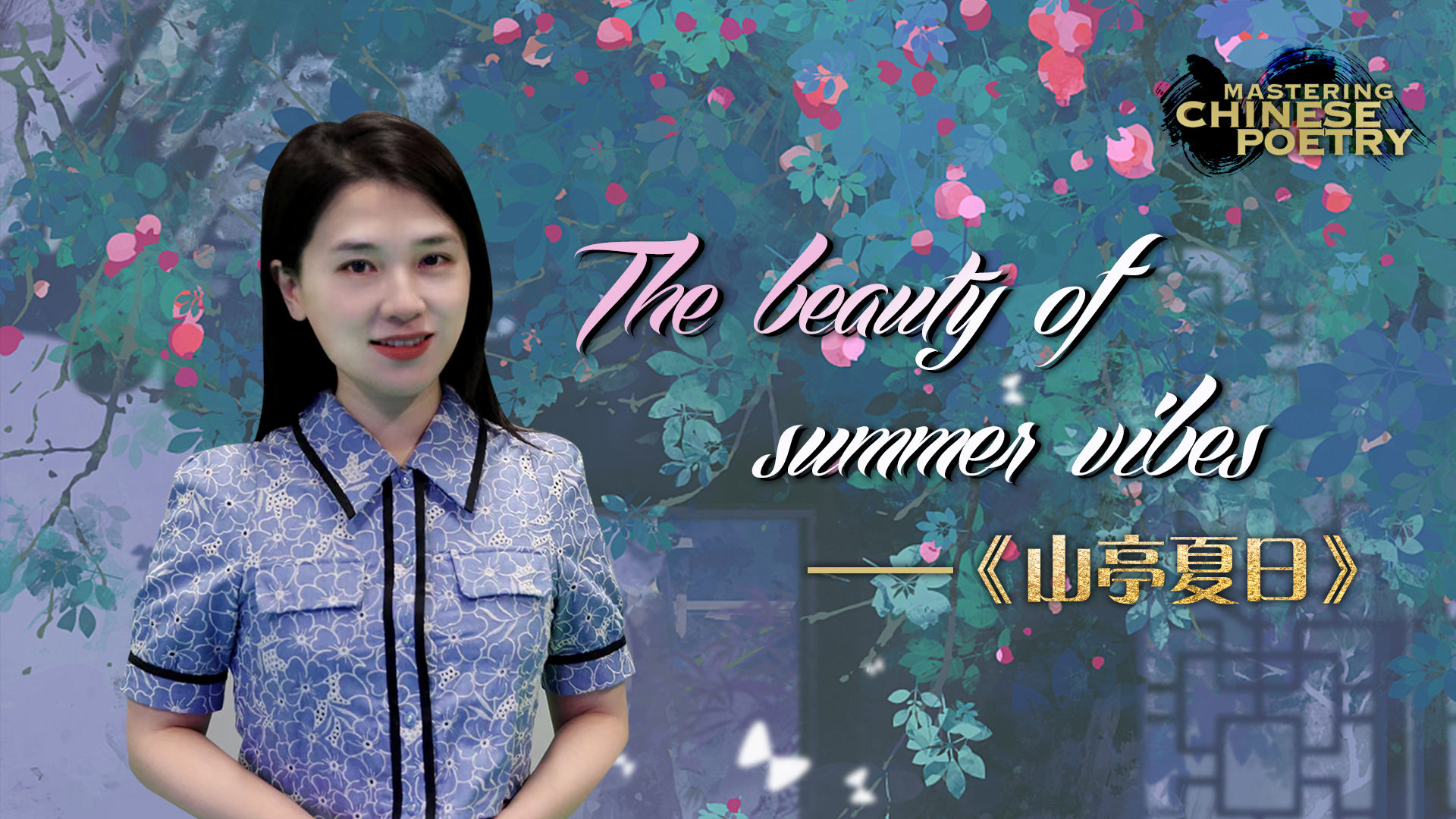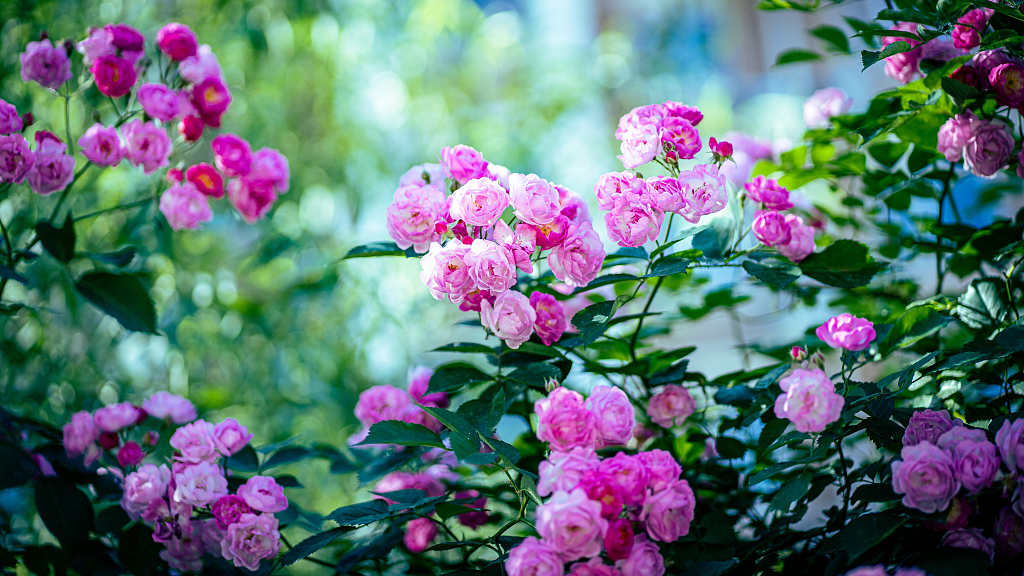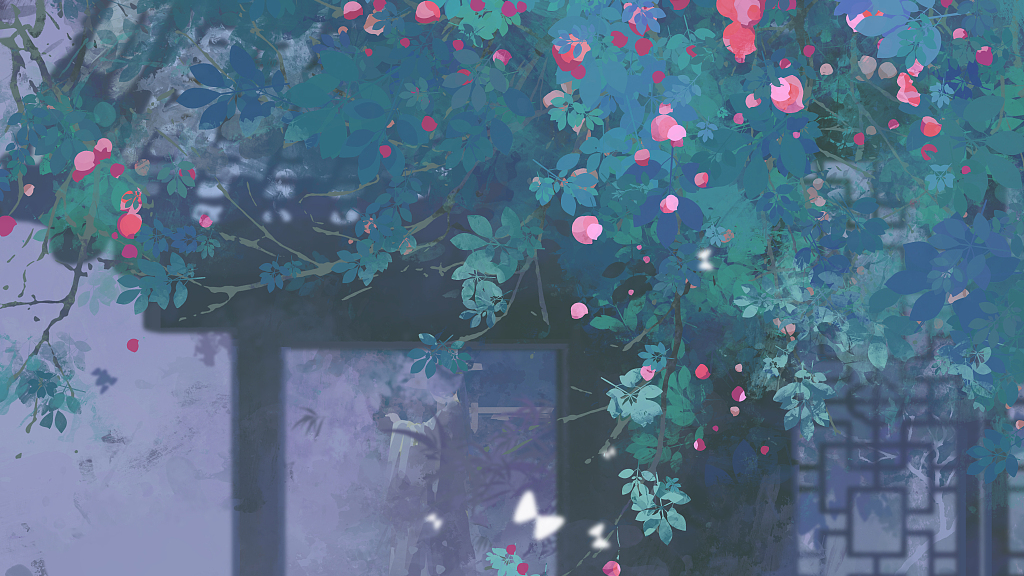03:55

Summertime can evoke special memories, such as the color of green, a longing for hope, or simply an everlasting heatwave. With the change of season upon us, let's explore the possibilities for depicting its charm.
In this episode of Mastering Chinese Poetry, we look at a classic story by Tang Dynasty poet Gao Pian: "A Pavilion in the Mountain on a Summer Day."
A Pavilion in the Mountain on a Summer Day
The summer day's as long as the green shade's cool;
The pavilion casts its shadow into the pool.
The gentle breeze ripples the water crystal-clear;
The trellis of roses spreads fragrance far and near.
(Translated by Xu Yuanchong)
The seven-character quatrain describes the scenery of summer, giving a sense of leisure by a mountainside pavilion on a summer's day.
lǜ shù yīn nóng xià rì cháng
绿树阴浓夏日长,
lóu tái dào yǐng rù chí táng
楼台倒影入池塘。
The first two sentences imply that it was at noon, when the sun was scorching but the shade of trees was both leafy and dense.
The poet took a look at the reflection of the pavilion in the pool, which was vivid and lifelike. Clear is the water that flows, surrounded by silence.
shuǐ jīng lián dòng wēi fēng qǐ
水晶帘动微风起,
The third sentence is seen as particularly exquisite.
For one, the water glittered in the sunlight like a piece of crystal curtain. When the gentle breeze came, it rippled along with the reflection of the pavilion, complementing each other in a beautiful way.
The poet first saw the water rippling, and then realized that there was a breeze. What an evocative detail: the summer breeze was so gentle that you wouldn't notice until you saw the ripples.
While the poet was enchanted by the summertime scenery, he noticed the beautiful roses and felt refreshed.

mǎn jià qián wēi yī yuàn xiāng
满架蔷薇一院香。
The last sentence evokes a riot of color and a fragrant aroma, encapsulating the poem with a unique summer vibe.
Inspired by the landscape in summertime, this work features techniques of expression similar to painting, depicting a bright and colorful picture.
Although it's not mentioned throughout the poem, you can tell from the title that it was written from the perch of a pavilion.
Wherever you may be reading these lines – you may sense the poet sitting leisurely in the pavilion enjoying his surroundings.
The poem also arouses the senses, including sight, smell, hearing and touch, to capture each and every detail in a subtle way. The piece presents light and shade, colors and sounds, as well as the scents of the mountain, creating a cool and relaxed atmosphere on a summer day.

In ancient China, there were plenty of ways to stay cool and enjoy nature in summer. For instance, a cup of tea under a tree, appreciating a lotus by the lake, taking a rest in the bamboo forest, or making small talk in a pavilion.
Do you have any refreshing customs in summertime? Share with us, enjoy the new season and see you in the next episode!
Reporter: Zhang Meng
Videographer: Zhang Rongyi
Video editor: Xu Xiaotong
Script writer: Zhang Meng
Cover designer: Yu Peng
Copy editor: John Goodrich
Chief editor: Wang Mingyan
Producer: Li Tianfu
Executive producer: Wen Yaru
Supervisor: Zhang Shilei

